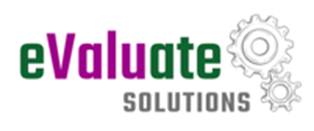SaaS technology contract renewals are a pivotal moment in the customer-provider relationship, marking the continuation of cloud-based service subscriptions. These renewals are not mere formalities but strategic checkpoints, offering an opportunity to reassess and realign the services provided with the evolving needs of the business. They serve as a juncture for negotiation, potentially adjusting terms, expanding service scopes, or enhancing features.
Effective management of these renewals is crucial, as they can significantly impact the long-term software infrastructure and financial planning of an organization. In this digital age, where software is not owned but subscribed to, the renewal process becomes a critical business ritual.
The Strategic Edge of SaaS Contract Renewals?
SaaS technology contract renewals are vital cogs in the machinery of modern business operations. They ensure the continuity of services and support that businesses rely on to function efficiently and effectively. These renewals are not just administrative tasks; they are strategic opportunities to negotiate terms that can lead to improved services and cost savings.
1. Uninterrupted Service:
Timely renewals are critical to maintain uninterrupted access to essential SaaS tools that businesses depend on, ensuring there’s no break in service continuity which could hinder daily operations.
2. Cost Management:
Renewal periods open the door for financial reassessment, providing a platform to renegotiate terms, secure discounts, or adjust plans to align with budgetary changes and cost-saving objectives.
3. Service Evaluation:
They serve as a scheduled interval for evaluating the effectiveness and utility of the SaaS product, allowing companies to decide whether to continue, upgrade, or switch services based on performance.
4. Feature Updates:
Renewals can be leveraged as an opportunity to access newer, more advanced features or to expand service offerings, ensuring that a business remains at the cutting edge of technology.
5. Vendor Performance Review:
The renewal process includes a critical evaluation of the vendor’s performance, ensuring that service level agreements are being met and customer satisfaction is maintained.
6. Compliance and Security:
Renewals provide an occasion to verify that the SaaS provider’s offerings are up-to-date with the latest in compliance standards and security protocols, safeguarding company data.
Five of the Biggest Flaws with SaaS Technology Contract Renewal Processes
The renewal of SaaS technology contracts is a critical process, yet it is often fraught with inefficiencies that can lead to unnecessary costs and operational disruptions. Identifying and addressing these flaws is essential for businesses to ensure they continue to derive maximum value from their SaaS investments.
1. Lack of Preparation:
Businesses frequently enter renewal negotiations unprepared, without a comprehensive review of their current usage data and contract terms. This lack of preparation can result in missed opportunities to optimize service features or negotiate more favorable terms, leading to continued investment in underutilized or misaligned services.
2. Auto-Renewal Overreliance:
Auto-renewal clauses, while convenient, can be a double-edged sword. Companies may inadvertently commit to another term without reassessing the contract’s value, bypassing the chance to renegotiate terms in light of current market conditions or the company’s evolving needs, which can lead to overpayment or misalignment with strategic objectives.
3. Inadequate Tracking:
The absence of a centralized tracking mechanism for contract milestones often leads to overlooked renewal deadlines. This can cause rushed decision-making under pressure, resulting in less-than-ideal contract terms or even service discontinuation, which could disrupt business operations and incur additional reinstatement costs.
4. Neglecting Market Research:
By not engaging in thorough market research, companies miss out on insights into advancements in SaaS offerings. This oversight can prevent them from leveraging new functionalities or cost savings introduced in the market, leaving them with outdated solutions that may not serve their evolving business needs effectively.
5. Poor Communication:
Inadequate communication among internal teams regarding renewal timelines and strategic objectives can lead to disjointed decision-making. When stakeholders are not aligned or fully informed, renewal outcomes may not reflect the collective needs or goals of the organization, potentially resulting in suboptimal utilization of the SaaS solutions.
The Future of SaaS Contract Management
The future of SaaS technology contract renewal processes is poised for a significant transformation. Driven by the need for greater efficiency and alignment with business goals, these processes will become more strategic and data-driven. Companies will leverage analytics to assess usage patterns and value derived from services, ensuring renewals are based on tangible metrics.
Automation will streamline the tracking and management of contracts, while AI could assist in predicting optimal renewal terms. Enhanced communication tools will ensure that all stakeholders are engaged and informed throughout the renewal process, fostering better decision-making. As a result, the renewal process will not only be more efficient but also a key driver of business growth and innovation.
Conclusion
Refining SaaS contract renewals is crucial for operational excellence. Future processes will be smarter, more connected, and strategically aligned, ensuring that businesses not only sustain but also enhance their competitive edge through judicious and informed SaaS investments.






